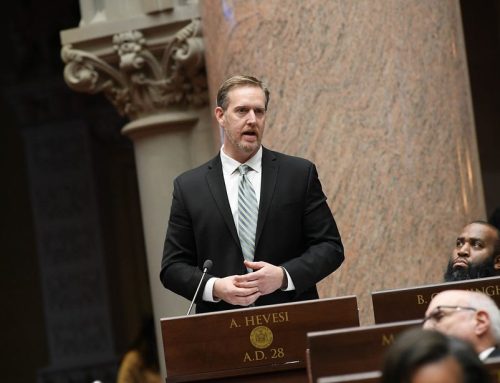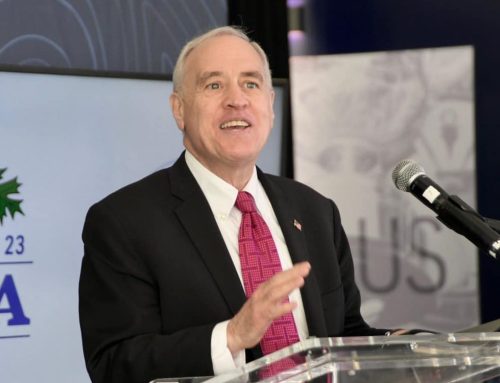Legislature punts on consumer friendly ticket sales reforms
Legislation introduced on Sunday appears to signal the death of an ambitious attempt to regulate the live-event ticketing industry during the 2025 legislative session.
Democratic state lawmakers Ron Kim and James Skoufis released an omnibus bill in May that caps service charges on tickets at 25 percent of the price of a ticket, updates the refund policies for delayed events, and allows musicians to ban tickets from their shows being resold at a profit on the secondary market.
This proposal represented a heavy lift, as it came out with just a few weeks left on the legislative calendar and faced stiff opposition from industry groups.
“Ninety-nine fans out of 100 will tell you this system is broken and we are very committed to to trying to fix that. That’s that this bill looks to do,” Skoufis told The Capitol Pressroom in early June, when he was promoting his bill with Kim. “It clearly has upset some stakeholders. We understand that, but sometimes you’ve got to upset some stakeholders in order to make good public policy in this place.”
If the legislation from Skoufis and Kim had been amended this weekend – in response to external and internal concerns – it would have been a likely indicator of a compromise to secure passage this week, but no amendments were released as of 11 p.m. on Sunday.
A clearer sign that the bill is not moving came in the form of legislation introduced on Sunday by Kim and state Sen. Mike Gianaris that simply extends the existing laws governing ticket sales from June 30, 2025 until June 30, 2026. The timing of the introduction means the bill will be ripe for a vote before the scheduled end of the legislative session.
In response to the introduction of the one-year extender, Skoufis said, “Our majority conference was overwhelmingly supportive of legislation to overhaul live entertainment ticketing that was endorsed by consumers, artists, Broadway, and the AFL-CIO. I have nothing complimentary to say about the straight extender – the exact preferred outcome of scalpers – and I will be voting against it.”
Typically this area of law is extended in increments of three years, which suggests the legislature could consider a more ambitious measure in 2026.
In a statement, Kim said he looked forward to revisiting the issue in the next legislative session.
“Senator Skoufis and I spent countless hours meeting with the businesses, promoters, consumer groups, artist advocates, and platforms that represent this industry, and examining the issues that make buying a ticket such an unpleasant and often frustrating experience,” he said. “I believe we crafted a thoughtful bill that addressed many of the concerns on the table, but the timing and internal hurdles prevented us from reaching the finish line this time around.”
A representative for Gianaris did not immediately respond to a request for comment late on Sunday.










Social Media